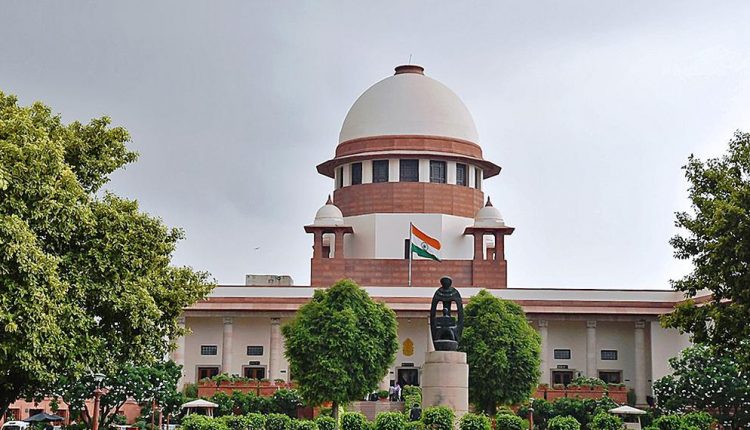SC Seeks Centre’s Response On Decriminalising Teenage Sex; Romeo-Juliet Law Under Review

New Delhi: The Supreme Court on Friday sought the Centre’s response on the application of the Romeo-Juliet law to India to decriminalise consensual teenage sex as a PIL claimed millions of under-18 girls and over-18 boys engage in consensual sex, but a boy gets arrested for statutory rape if the girl gets pregnant and her parents lodge a complaint with police. Under the Protection of Children from Sexual Offences Act (POCSO), 2012, consent of a child below 18 years of age is immaterial and any person who attempts sexual activity with such an underage person would be guilty of sexual assault. Under Section 375 of the Indian Penal Code, sex with a girl below the age of 16 is rape even if she had given her consent.

There is a growing argument suggesting a potential redefinition of the term “Child” in Section 2(d). Lawmakers propose that any consensual sexual activity or related acts occurring after the age of 16 should not be subject to the stringent provisions of the POCSO Act.
Instead, they suggest the introduction of more lenient legal provisions within the Act. This is to differentiate between cases involving teenage relationships after 16 years of age. In addition, it includes sexual assault cases involving children below the age of 16.
Petitioner-advocate Harsh Vibhore Singhal pleaded with a bench headed by CJI D Y Chandrachud that many boys, who are just over 18 years of age, have been stigmatised on being arrested for indulging in consensual sex with girls who are in the 16-18 age group. He pleaded for decriminalisation of consensual sex between over 16-year-old girls and boys who are in the age group of 16-20 years.
The CJI-led bench, also comprising Justices J B Pardiwala and Manoj Misra, issued notice to the Union government when Singhal argued about the importance of extending the Romeo-Juliet law to India to decriminalise consensual sex between 18-19-year-old boys with girls of 16-18 years of age.
“This grey area of law, a legislative vacuum, needs to be filled by guidelines on how statutory rape laws would operate by assessment of consent of 16+ to 18-year-olds before indicting the consenting adults,” he said.
“In most foreign countries, the laws of statutory rape reprieve adults in consensual sex with minors if difference in their respective biological ages is 3 to 4 years. Called Romeo Juliet Clause, it treats consensual sex partners as Romeo and Juliet on the lines of William Shakespeare’s play ‘Romeo & Juliet’ recognizing that there isn’t much difference in capacity, competence and maturity of a 16-17 year old and a 20-21 year old and are treated as adults,”
Singhal argued.
The PIL petitioner quoted a study conducted for the Union Ministry of Health, according to which 10% of women in the age group of 25-49 years had their first sexual intercourse before the age of 15, and 39% had their first sexual intercourse before the age of 18 years.
“It is clear that underage sex is widely prevalent in India. Those who get caught get hauled for statutory rape; millions have consensual sex before turning 18. It is ironical that while contraceptives are provided, consensual sex is criminalized – that too when pregnancy occurs! Such legislative practice fails to make laws consistent with social realities, ” he said.
Requesting the SC to use its omnibus powers under Article 142 of the Constitution to evolve a set of binding guidelines and principles, the petitioner said one of the components of such guideline could be a mandate to police to drop rape charges against a teenage adult if the underage girl makes a statement before a magistrate under Section 164 of Criminal Procedure Code that the sexual relationship was consensual.

Comments are closed.